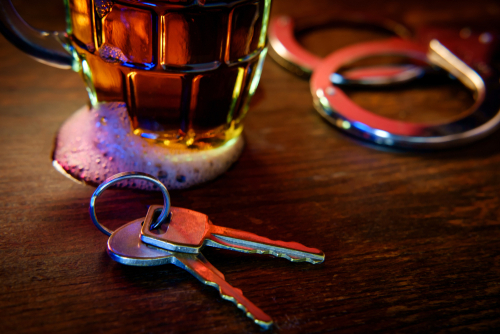What is Fourth-Degree DWI in Minnesota?
8 months ago by Justin M. Schiks
If you’re pulled over for DWI in Minnesota, you’re facing a serious offense – even if it’s your first DWI. Law enforcement takes this type of violation seriously. If you’re charged with 4th-degree DWI, it means that you’re charged with driving a vehicle under the influence of a controlled substance and/or alcohol. This charge is given to first-time offenders who have had no previous DWIs in the past ten years.
The blood alcohol concentration (BAC) is between .08 and 0.16. For commercial drivers, the range is between .04 and .016. You may also be subject to the charge of 4th-Degree DWI if you’re driving with a canceled driver’s license, which is deemed “inimical to public safety.”
If you face any type of DWI charge, consult with a DWI defense attorney immediately.
Possible Penalties for Fourth-Degree Misdemeanor DWI Offenders
If you’re convicted of a 4th-degree DWI misdemeanor, the court may punish you in several ways.
- Fines: You may be required to pay fines up to $1,000, exclusive of fees and other surcharges.
- Jail Time: Jail time may be imposed up to 90 days.
- License Suspension: You can get your license revoked for up to 90 days.
The Range of DWI Offenses
DWI offenses range from 4th-degree misdemeanor to 3rd-degree gross misdemeanor to 2nd-degree gross misdemeanor to 1st-degree misdemeanor. The 4th-degree misdemeanor for DWI is a baseline offense for first offenders.
Aggravating Factors
If you’re a first-time offender and refuse to take a chemical test, the charge jumps to a 3rd-degree DWI. Three aggravating factors increase the seriousness of a DWI:
- Having a previous DWI conviction or license renovation in the past ten years.
- Have a blood alcohol concentration (BAC) of .16 or higher.
- Having a child under 16 years old in the car who is more than three years younger than the driver.
The above factors escalate the charge to a third-degree DWI or gross misdemeanor. Naturally, you need to consult with a DWI lawyer to plan a defense strategy. Work with a legal professional who understands the intricacies of these cases.
Also, if you refuse a chemical test, the charge is increased for a second-degree DWI (a gross misdemeanor), which is punishable by a year of jail time and/or up to $3,000 in fines. A test refusal carries at least a year’s loss of your driving privileges as well.
The charge is considered a felony, or 1st-degree DWI, if you’re involved in an accident or a previous crash where another person is injured or killed.
Because a 4th-degree DWI is considered a misdemeanor, it does not carry minimum sentencing requirements. As noted, the greatest penalty is incarceration of 90 days with a fine of $1,000. On average, you’ll pay a fine of $300 and be sentenced to probation.
In addition, a 4th-degree DWI does not require mandatory bail or release guidelines. If you’re released from jail when you’re arrested and show up in court or waive an appearance through your lawyer, you might not have to pay bail and still stay out of jail.
Contact a DWI Defense Lawyer Today
While a fourth-degree misdemeanor is the least serious DWI offense, it does not mean you should view it lightly. You still need to obtain the services of a lawyer. In Minnesota, contact JS Defense for a consultation now.

